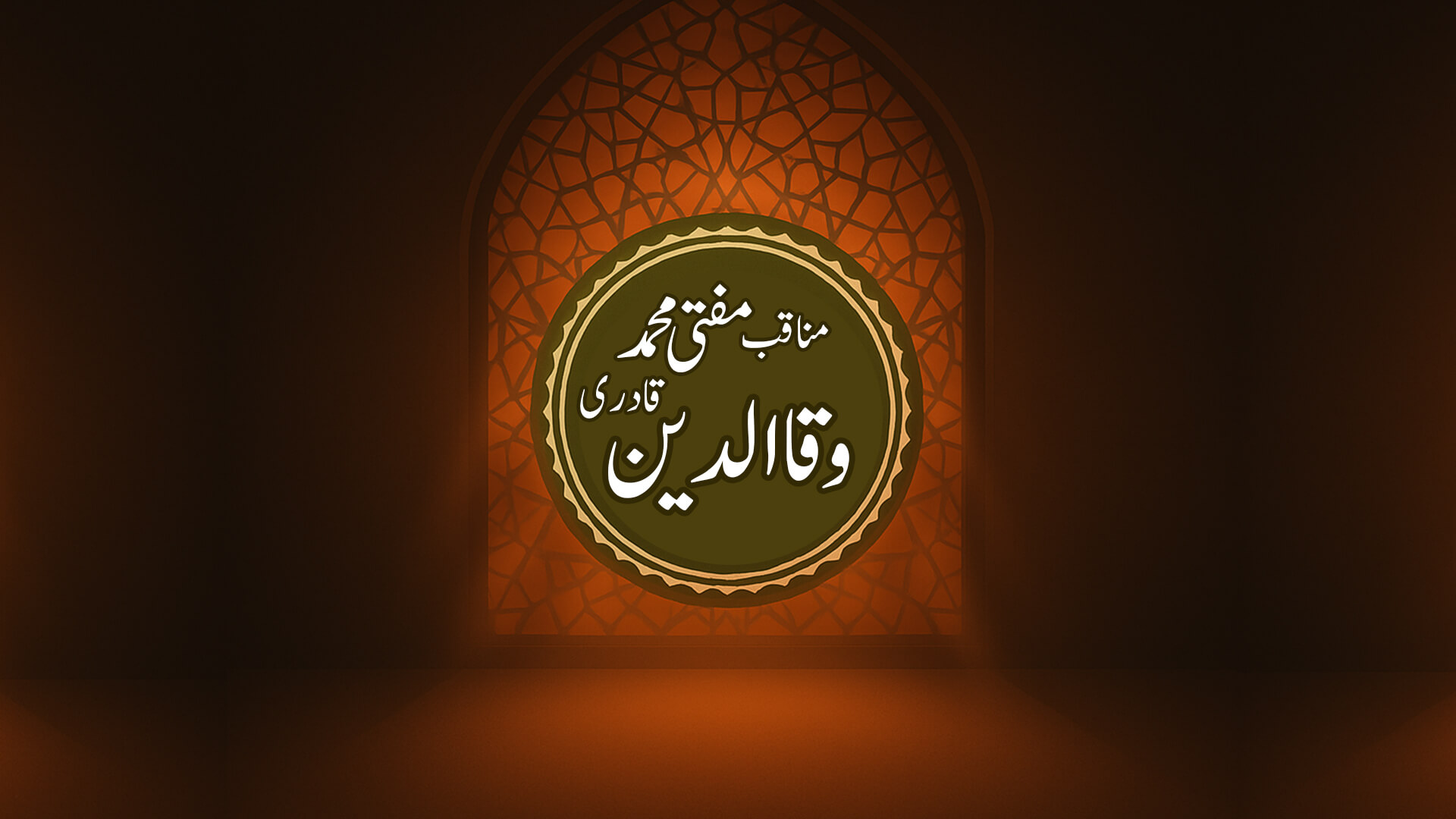Mufti Muhammad Waqaruddin Qadri: A Legacy of Islamic Scholarship
By: Huzaifa Saeed

Early Life and Family
Mufti Muhammad Waqaruddin Qadri, also known as Waqar-e-Millat, was born on 1st January 1915 (14 Safar 1333 AH) in Khamaria, Pilibhit, Uttar Pradesh, India. He hailed from a family of scholars and middle-class landlords of the Arain tribe. His father, Hameeduddin, was a Hafiz of the Quran, and his mother, Imtiazun Nisa, belonged to a respected family from Pilibhit.
Education and Scholarly Journey
Waqaruddin Qadri started his early education in his native village and later attended Madarsa-e-Astana-e-Sheria, Pilibhit. He continued his studies at Manzar-e-Islam, Bareilly, the famous seminary established by Imam Ahmed Raza Khan. Later, he went to Dadon, Aligarh, where he completed his Daura-e-Hadith under Hakim Amjad Ali Aazmi, receiving his degree in 1937.
Academic Contributions
His career as an Islamic scholar began at Madarsa Manzar-e-Islam, where he initially served as a teacher and was later promoted to a managerial role overseeing academic affairs. He was actively involved in religious debates and was known for his defense of Sunni Barelvi teachings.
In 1954, he moved to Jamia Ahmadiyya Sunnia Kamil Madrasa in Chittagong, East Pakistan (now Bangladesh). After serving the people of East Pakistan until 1971, he migrated to West Pakistan due to the civil war and settled in Karachi.
In Karachi, he joined Darul Uloom Amjadia as the head of teaching and jurisprudence. His scholarly contributions were widely recognized, and he played a crucial role in shaping the religious discourse of Pakistan.
Spiritual Leadership and Fatwas
Mufti Waqaruddin took Bay’at (spiritual allegiance) at the hands of Hamid Raza Khan Qadri and later received Khilafat (spiritual successor-ship) from Mustafa Raza Khan Qadri. He was an expert in Islamic jurisprudence, and his Fatwas (religious rulings) were compiled in the well-known three-volume book “Waqar-ul-Fatawa”. One of his notable rulings was his declaration that it is impermissible to shave the beard.
Influence and Recognition
He was appointed Grand Mufti of Pakistan during General Zia-ul-Haq’s regime and played a key role in shaping Islamic jurisprudence in the country. He was also a member of the Markazi Ruet-e-Hilal Committee and contributed to defining the constitutional meaning of the term "Muslim" in Pakistan.
Among his prominent students was Maulana Ilyas Qadri, the founder of Dawat-e-Islami.
Books and Writings
Mufti Waqaruddin Qadri authored several books, including:
Waqar-ul-Fatawa (A comprehensive collection of Fatwas)
Zakat Ki Ahmiyat (The Importance of Zakat)
Masail-e-Itikaf (Issues of Itikaf)
Death and Legacy
Mufti Waqaruddin Qadri passed away on 19th September 1993 (20 Rabi’ al-Awwal 1413 AH) in Karachi, Pakistan. He was buried at Darul Uloom Amjadia, Karachi. His legacy continues to influence scholars and religious circles in South Asia.
Poetic Tributes to Mufti Waqar Ud Din
Many have written verses and manqbats in honor of Mufti Waqar Ud Din, acknowledging his wisdom, guidance, and the impact he had on their lives. These tributes serve as a reminder of his unmatched dedication to spreading the message of Islam.
These Manqabt reflect the profound respect and admiration for Mufti Waqar Ud Din's contributions to the community and the legacy he leaves behind.
Mufti Waqar Ud Din’s life and work stand as a testament to the power of knowledge, faith, and dedication. His legacy continues to inspire countless Muslims, urging them to uphold the true teachings of Islam with wisdom and understanding. May Allah grant us the ability to follow in his footsteps and carry forward his message of peace, justice, and scholarship. Ameen.